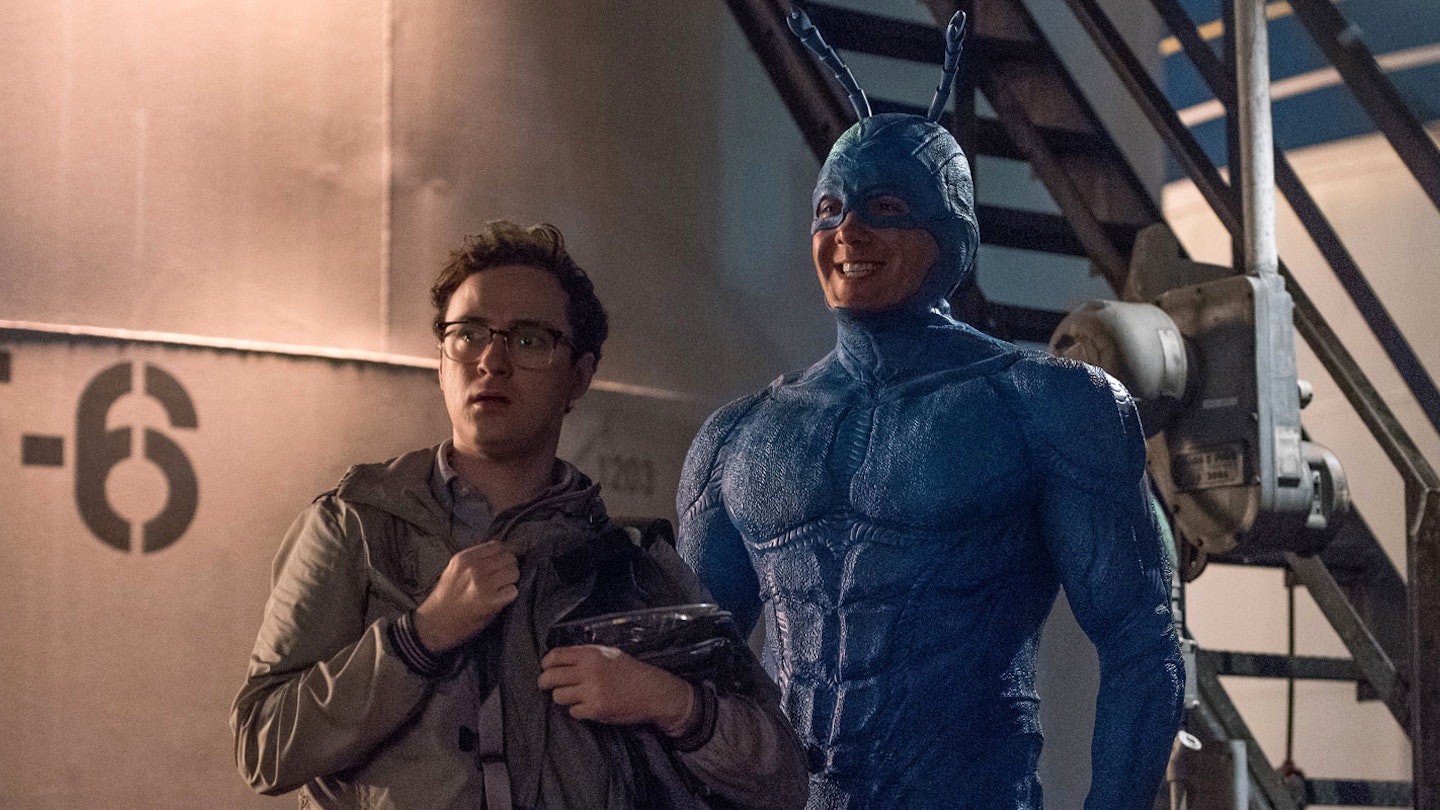All together now: "Spoon!!!"
If you're out of practice, you've got until some time next year to learn the battlecry of The Tick, the man in blue who is returning to television in the new Amazon series. Thanks to the concept's success during the streaming service's recent pilot competition, the show is coming back with Peter Serafinowicz in the title role and Griffin Newman as his sidekick, Arthur; with Tick creator Ben Edlund at the helm.
In the following interview, Edlund and producer Barry Josephson detail the challenges of creating this new version and drop some hints on where the series will be going. This is, of course, the third filmed incarnation of The Tick, following the 1994-96 animated take that featured the voice of Townsend Coleman, and the 2001 live action show starring Patrick Warburton.
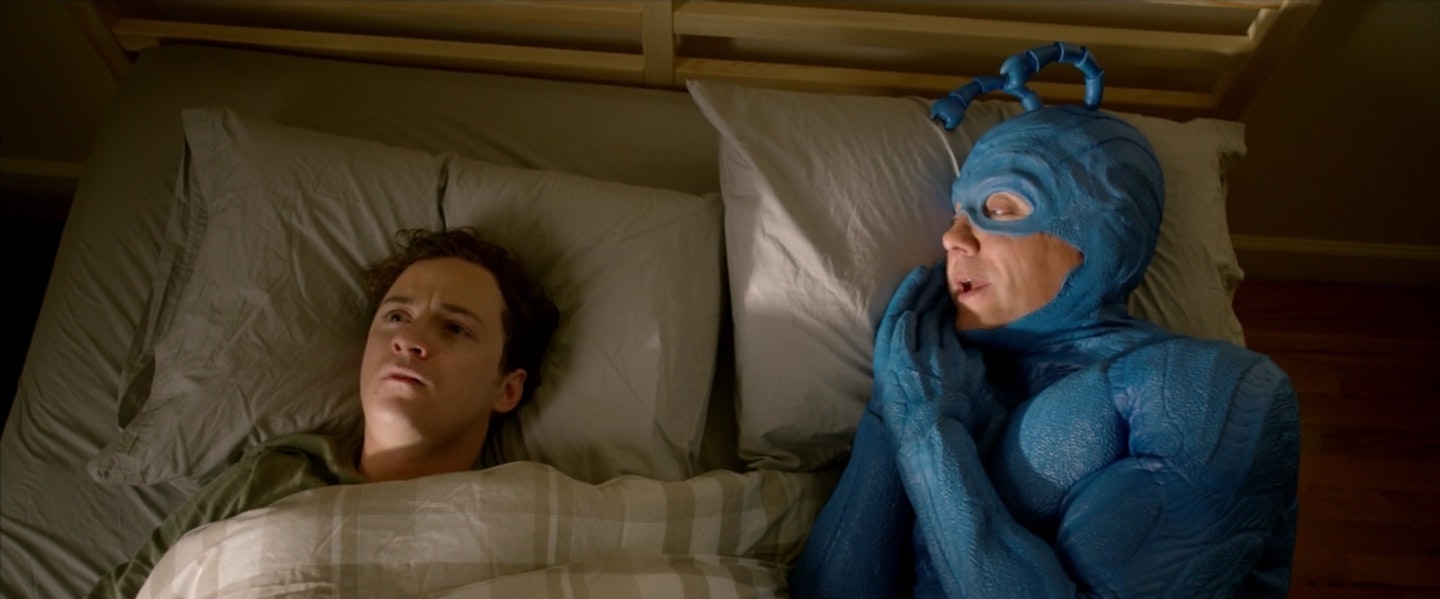
With the Amazon pilot for The Tick going to series, are you going insane worrying about the next step or does it feel relatively easy?
Ben Edlund: No, they gave me three years to wonder whether or not there would be a pilot, so in that three year period I developed a lot of material. I’m really looking forward to my new partners in crime, David Fury, who I worked with on Angel; and Jose Molina, from Firefly, Agent Carter, Sleepy Hollow and a bunch of other stuff. We’re pulling on more people, and that’s our starting point. We’re just going to sit down and I’ve got to do a lot of constructive regurgitation, push around through all the pieces, pick out the cat heads and unnecessary objects, and I think we’ll have a lot of material to work with.
Barry Josephson: When Ben sat down to write the pilot, and this is true anytime you’re working on a pilot, you start to think about where the series might be heading. Now that we know how many episodes we're going to be doing per season, he and David and Jose and the rest of the staff sort of mapped out what that is. He's had a very good idea in his head as to the direction he's headed.
Edlund: We pitched this to Amazon about eight times. We would just come in once in a while and read to them. But there was a point where we were up a river in the sense that it needed a chiropractic shift and break. Then I kind of had what made sense to me when we went in with them and sat down to tell them the whole story. They just were not sure if they wanted to buy it yet.
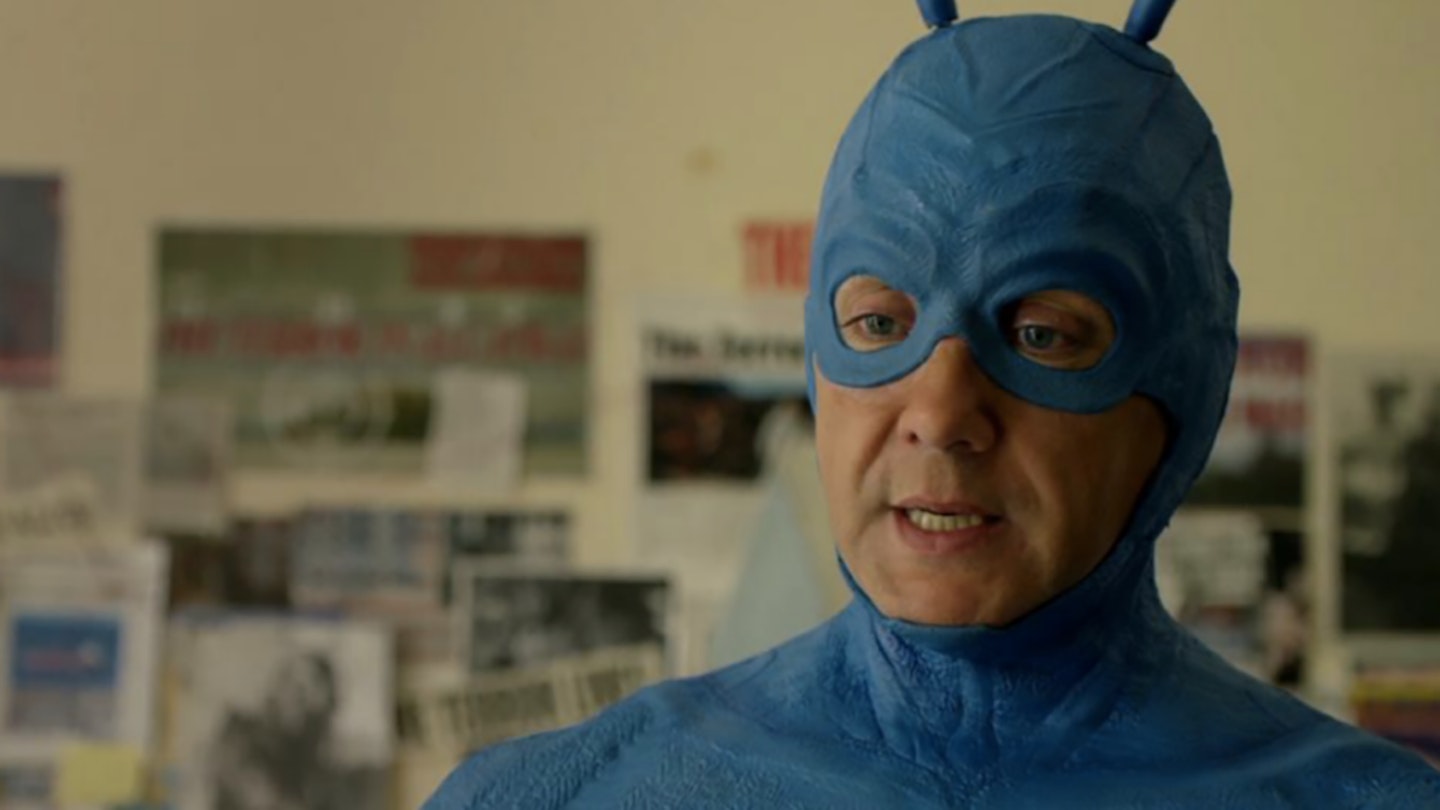
Josephson: It wasn't perfectly linear yet.
Edlund: No, but it was immense. Normally you're never supposed to burden the room that you're pitching with all these details, but I told them mercilessly detailed stories that were five years long.
Josephson: And they didn't stop you!
Edlund: No, they did not. And at the ending they were, like, “We want that!” I've never had that experience before. So I have told them the story that I wanted to tell.
How would you compare the cartoon incarnation with the two live action versions? They are all a little different, so how would you classify each of them?
Edlund: Each one is of it's surroundings. The Tick was a comic book first. It was a black and white comic and it came out of the gate making fun of being a member of the world of Teenage Mutant Ninja Turtles, or making fun of things like Frank Miller's Daredevil. It lived in the fringe and it was very much that. And then we had a Saturday morning cartoon we shot. We made it in Korea using the same tools as Gem. So that felt of its place and time. The deviations from that form and culture we made were really arresting and interesting. Then the last live action was maybe more so a product of its time than we had full control over, but it lived in the world of live action expression of cartoons, live action Flintstones, live action Dudley Do-Rights and stuff. It almost had a punch drunk effect. So that was its own thing.
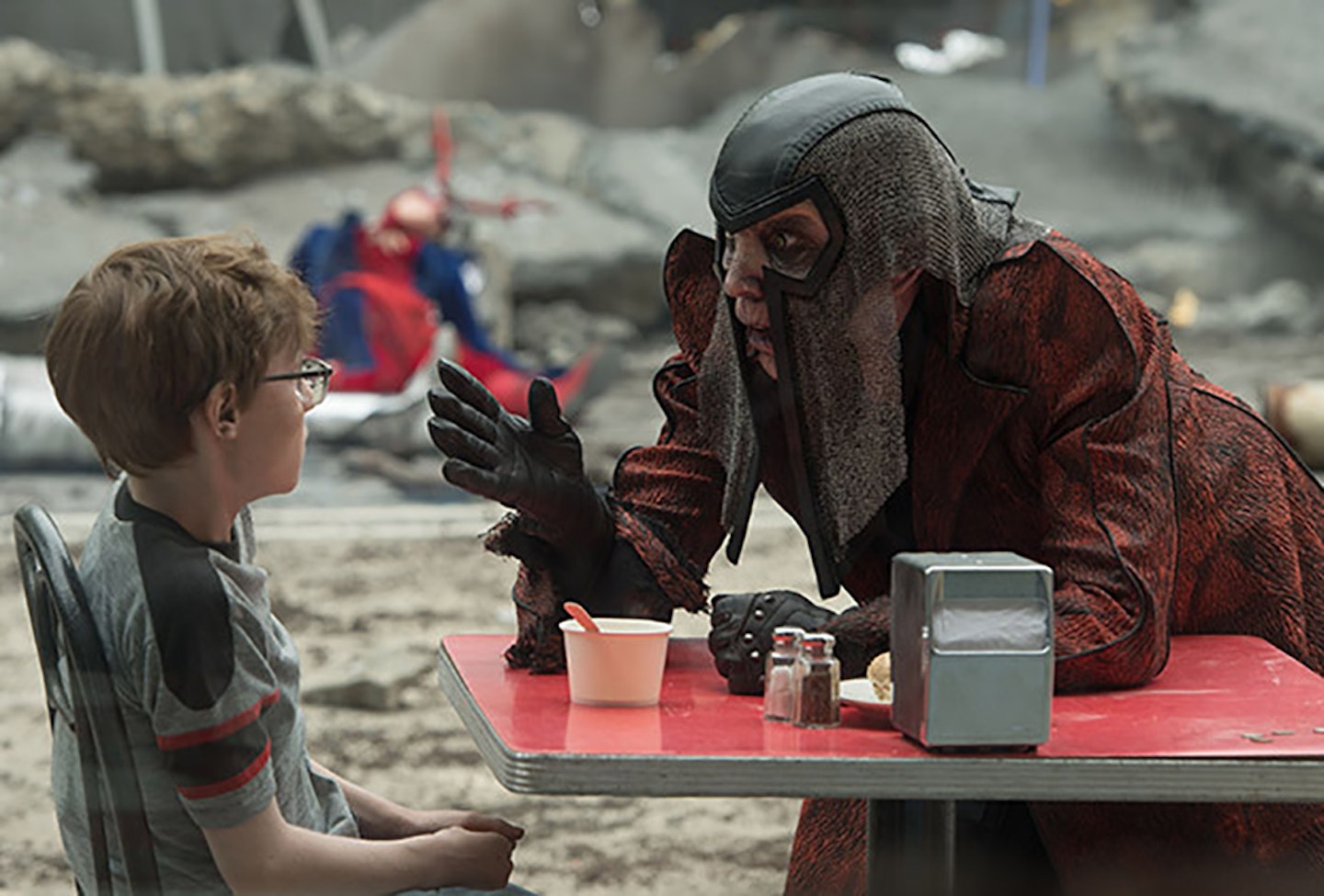
With this one, look where we are now. We're in this insane tsunami of superhero stuff where everyone knows the superhero tropes and basic forms, so this is a very ripe time to make fun of, but it's also a time where everyone demands an adult level of dramatic engagement in these properties — though we’re still going to be absurd.
Josephson: It's already crazy and dangerous. It's just so much fun to watch. And you never know exactly what you're going to get on any given day. So I'd say eighty to ninety percent of this version of that character is Ben. Some of it is Peter Serafinowicz.
Edlund: That’s always the case. That was the case with Patrick Warburton and Townsend Coleman. And here, I feel like Peter is the collaborator in Britain on some incredible work. Like Look Around You or, I don't know if I'm supposed to say he's the co-creator of Chiguru religion, but he is. And his work in humor is apex work. And Griffin Newman, who plays Arthur, is also just a brilliant comic presence.
Josephson: In answer to the question of how it grows and changes, a lot of that has to do with what’s in the day. It also has a lot to do with those performers. And this will also be its own version because of our director, Wally Pfister.
Edlund: Wally is one of the architects of the superhero look of today. But he's also got a good sense of humor, so he was the perfect person for us to use to layer this.
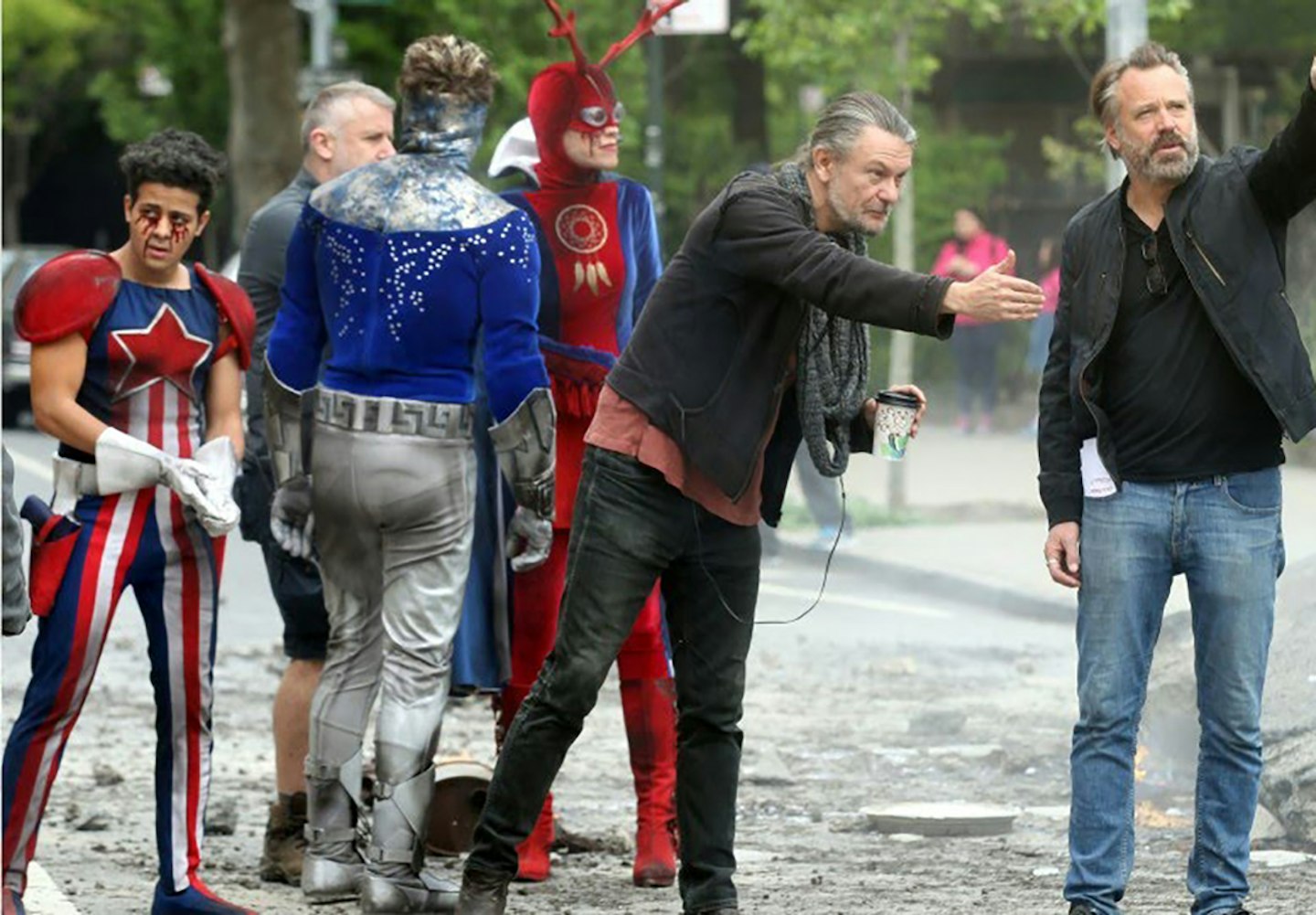
What’s the most exciting part about bringing this story to today's television?
Edlund: Through Amazon we're able to do twelve episodes a season, and that feels like the right number where I feel we can do really quality work. Television's in this incredibly great period where self expression and the sense of not having to cater to the lowest common denominator is here.
Josephson: Visual effects will also allow us so much more freedom. And what's great about Amazon is they're letting us create one long streaming movie, which is fabulous. There are things within each episode, but overall we’re telling one story per season. So it'll be interesting that when we do a second season, there will be a theme to that season. This season Ben has some really great stories to tell.
Edlund: TV's in a really wonderful place to play with as a creator, so that in itself is exciting and it seems like the audience is ready for a weird new thing. It's pretty experimental. We don't know one hundred percent where it'll go. I feel like we'll be looking at it in season two or three with a backlog of really bizarre things that have happened. Truly odd things where, ideally, it'll be, like, it's amazing that they put the money into making that happen on the screen. I don't even know what to feel.
Josephson: The meeting for this show at a network would have been a disaster, but Joe Lewis at Amazon looked up pand said, “I want to do that.” “You do? Awesome!”
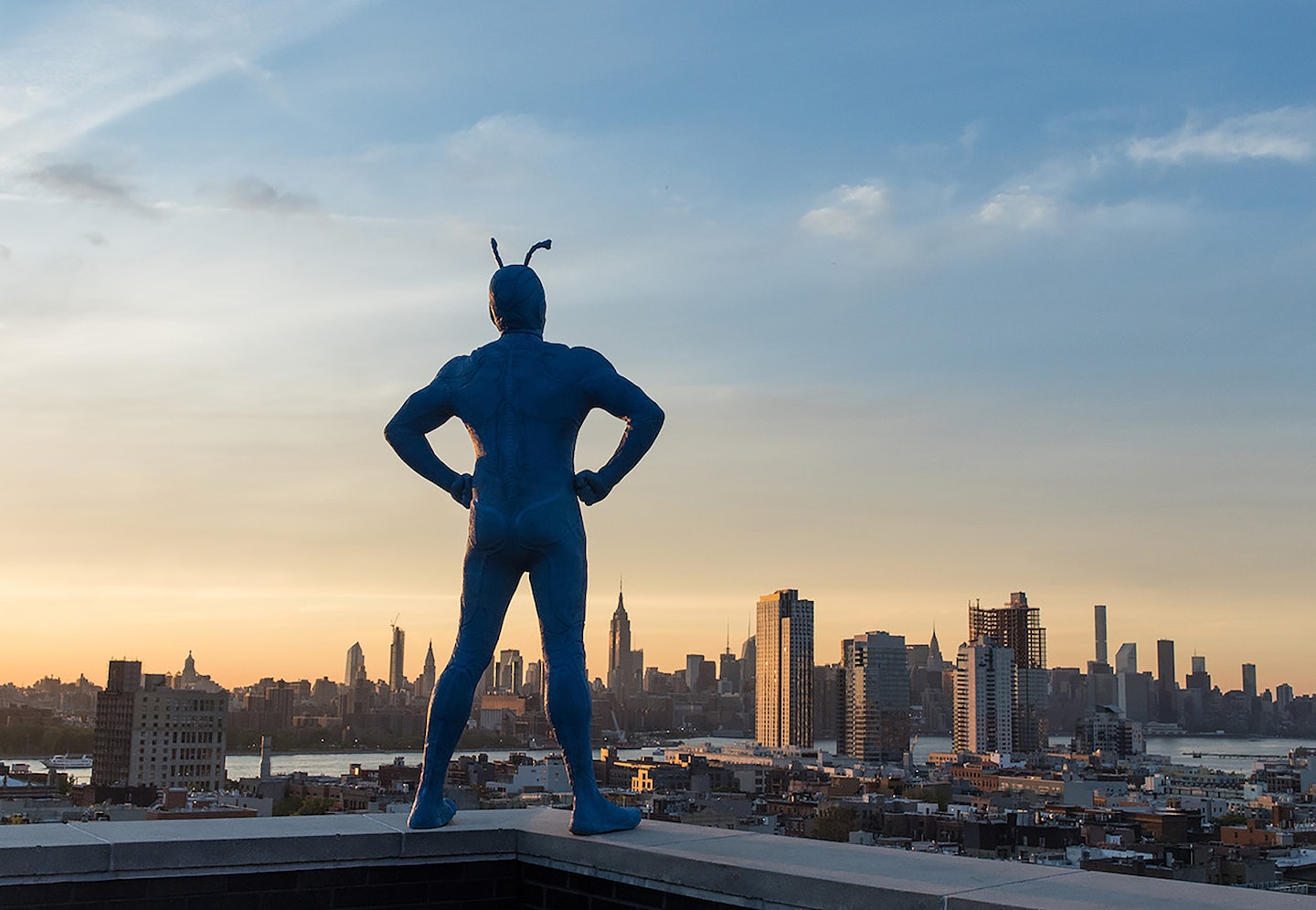
Edlund: I was totally expecting to see a centimeter thick glaze on the lenses of his eyes.
Was it intimidating to go through the Amazon pilot process, because they're letting the fans basically decide who will live or die.
Edlund: I think there was a moment that was intimidating to show anything like a new expression of the Tick to the fans. That was intimidating. Secondary to that was the notion of coming in low on the Amazon voting system or something, but for me it was a real test of whether the fans would reject it. We were in a position of coming in and having a pre-existing fan base and having a computer-voting war. A lot of people who know my work, that's what they do for fun. So I had a certain edge if the fans bought it. I guess they did.
